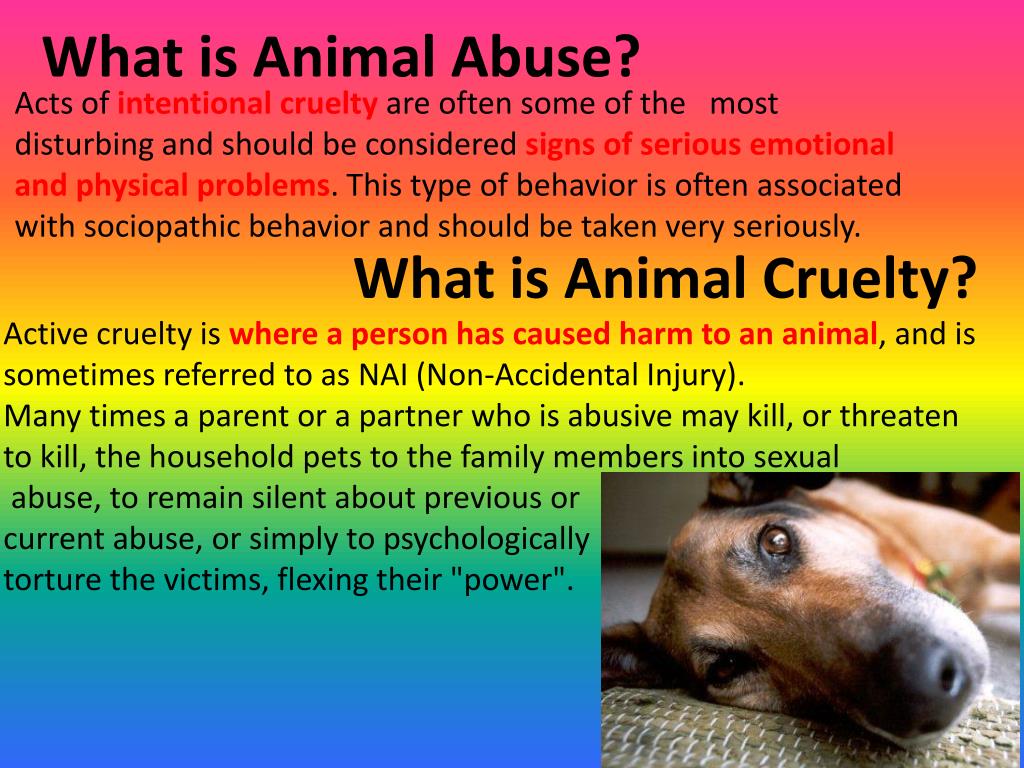The perplexing phenomenon of animal abuse invokes visceral reactions across the societal spectrum. However, a pressing question emerges: why are some individuals indifferent to the suffering of non-human creatures? This inquiry navigates the murky waters of human psychology, cultural norms, economic factors, and moral philosophy. Understanding the rationale behind these attitudes unveils critical insights into broader societal implications.
At the heart of this issue lies an unsettling dissonance within the human psyche. Many who perpetrate acts of animal cruelty may not consciously perceive their actions as harmful. This cognitive dissonance arises from a multifaceted array of factors. For instance, societal desensitization plays a pivotal role. In cultures where animals are frequently objectified or commodified—whether as entertainment, food, or labor—their intrinsic value is often overshadowed. Such normalization fosters a climate where humane treatment is not merely overlooked but actively disregarded.
The educational disparity also warrants attention. Those raised in environments where empathy towards animals is not espoused are less likely to develop a compassionate worldview. Children nurtured in households that neglect animal welfare often carry these indifferent attitudes into adulthood. In this context, education becomes a double-edged sword. While it can illuminate the ethical considerations surrounding animal rights, its absence perpetuates cyclical ignorance and apathy.
Moreover, certain socio-economic determinants contribute significantly to the acceptance of animal abuse. Individuals facing dire economic circumstances might prioritize their immediate survival over the welfare of animals. In such instances, the ethical considerations surrounding animal treatment can be seen as a luxury. This pragmatic approach, albeit troubling, illustrates a critical intersection between poverty and compassion. Thus, it begs the question: how do we cultivate empathy in societies that prioritize survival over sentiment?
Additionally, societal norms and cultural practices play a crucial role in shaping attitudes towards animals. In various cultures, certain practices that may appear brutal to outsiders—such as dog fighting, bullfighting, or even hunting—are ritualized and celebrated, thus embedding a sense of acceptability. These cultural frameworks can distort perceptions of animal welfare, leading individuals to rationalize abuse under the guise of tradition or sport. Therefore, how do we address this moral divergence without trampling upon cultural values?
Psychological factors significantly complicate the landscape of animal abuse. Some individuals exhibit a predisposition towards aggression or cruelty that manifests as a desire to exert power over the vulnerable. In psychological terms, this aligns with theories surrounding dominance and control. Such traits may be exacerbated by social conditions, including exposure to violence or trauma in childhood. This begs a critical reflection: how can society effectively intervene in the lives of those exhibiting such tendencies before they escalate to animal abuse?
Furthermore, the internet and social media’s rise creates a unique environment for the proliferation of harmful attitudes. Online platforms often facilitate the dissemination of graphic images or videos that desensitize viewers to violence against animals. The perception of animal suffering can become reduced to mere entertainment or shock value, diluting empathy and reinforcing discordant views on animal rights. In an age saturated with media, how do we reclaim a sense of compassion?
It is also vital to acknowledge the potential for cognitive biases that cloud moral judgment. The anthropocentric view prevalent in many societies posits humans as the paramount species, leading to a hierarchy that dismisses animal emotions and suffering. By framing animals as inferior or less sentient, individuals can easily justify malfeasance. Thus, how do we dismantle deep-seated hierarchies that perpetuate cruelty?
Understanding the acceptance of animal abuse requires a multi-dimensional approach. It is imperative for advocates and policymakers to engage with these intricate dynamics. Educational outreach programs targeting schools and communities can foster empathy and understanding, bridging the gap between cultural practices and humane treatment. Furthermore, campaigns that highlight the economic and health benefits of ethical treatment of animals can create a compelling narrative for change.
Legislation plays a crucial role in mitigating animal abuse. Stricter laws and enforcement can serve as a deterrent. Public awareness campaigns can galvanize communities, urging collective responsibility towards animal welfare. Ultimately, society must confront uncomfortable truths regarding its relationship with animals, moving towards an ethical framework that prioritizes compassion and respect for all living beings.
In tangling with the challenge of animal abuse, it becomes evident that understanding the root causes is not just an academic exercise but a necessary step towards fostering a more ethical society. The questions posed herein—concerning desensitization, economic factors, cultural practices, psychological predispositions, media influence, and cognitive biases—serve as a clarion call for introspection. As awareness and advocacy grow, perhaps we can alter the narrative surrounding animal welfare to encompass a universal embrace of compassion, transcending barriers of ignorance and indifference.









